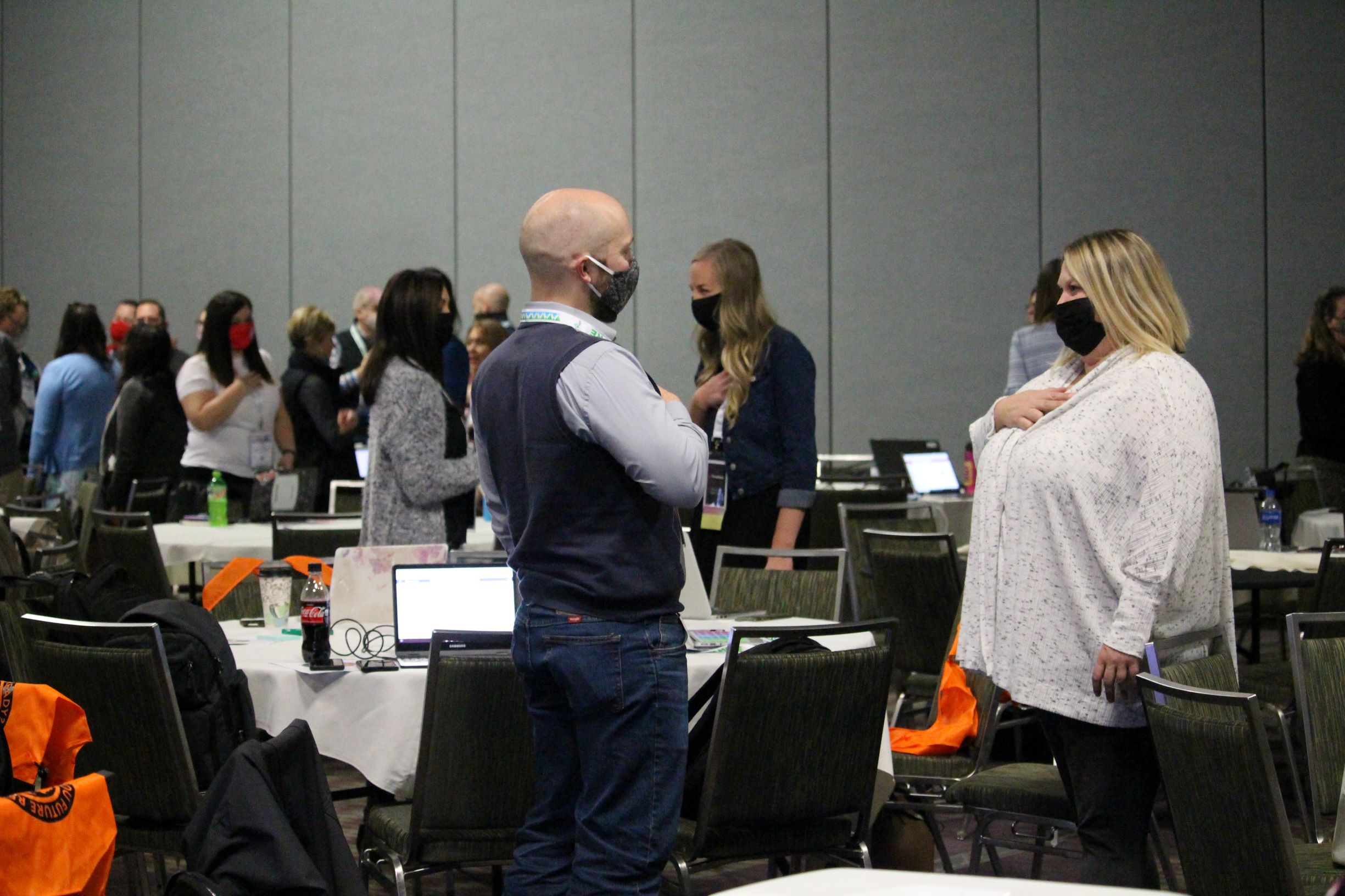At the opening of one of the first big live events for K-12 school leaders—the Future of Education Technology Conference in Orlando on Tuesday—Tom Murray of nonprofit Future Ready Schools offered his sincerest thanks to those attending Tuesday’s Coaching Summit.
“Thank you for your work and for loving and caring about the students and teachers you support,” Murray, Director of Innovation, told educators and instructional coaches. “The past two years, you’ve been to hell and back. We recognize the brilliance that you bring into this room. We recognize the hearts that you have, the chaos and trauma you’ve been through and the times you’ve stepped in for people that needed your support or because you just had to fill in for kindergarten because there was nobody else to do it.”
Those attendees, who have been the backbone of the return to learning, packed a pair of conference rooms at FETC to not only share their best practices and strategies with each other but also strengthen their work through the framework of innovative personal professional design and tools from Future Ready Schools. With it, they can continue to critically support teachers and administrators looking to keep students engaged and thriving.
“Looking out and seeing a full room just reinforces how important instructional coaching is, and how valuable it is to education,” said Brianna Hodges, Future Ready consultant and advisor and featured speaker for the Summit. “We need people to be shoulder to shoulder with educators to really create the best learning environment that we can. It’s super exciting to see this many people just come together, collaborate and connect.”
From building continuous learning to strengthening pedagogy, school leaders got the opportunity to learn how they can create structures to help their districts function better. They worked in small groups sharing their personal stories while tackling a number of topics, including what ideas have worked and which haven’t during the pandemic. Many talked about being nimble and how they’ve responded to the challenges by collaborating and providing supports during difficult moments.
“Pre-pandemic, we saw so much research on the importance of instructional coaching,” Hodges said. “It’s been validating to see that evolve over the years. That said, the pandemic created a shift where we’re in an all-hands-on-deck situation now. We’re seeing a lot of people that are doing multiple roles. Practicing what we preach, and really getting in that instruction situation is where we’re seeing that movement happening. It’s not from reading about a theory.”
More from DA: FETC is underway, in person and full of insights
As part of the Future Ready structure, Hodges urged attendees to push for time and space for personalized learning, to coach up faculty and to ensure the student data is robust so they can be more responsive. As the digital divide is still hampering some schools, leaders should work hard to finally close those gaps. Collaboration with stakeholders is vital, both in keeping costs within budget and implementing innovations that make sense for their individuals schools.
“As coaches, one of the most important things that we need to do is we need to remember that we need to be learner-centered,” she said. “We’ve got to be firmly focused on the outcome. What is the curricular instructional moment, that standard? What are the different ways that we’re getting there? If you’re just designing your professional learning plan prior to having a conversation with your faculty, you are doing this wrong. Your job as a coach is to connect why your classroom will support that reading initiative.”
For coaches who have experienced the highs and lows of the pandemic, they seemed in agreement on one thing as Hodges walked the room asking for their guidance and solutions. When asked about the future, they resoundly shouted they were not going back to pre-pandemic strategies, or back to normal.
“It was terrible. Why do we want to go back to that?” Hodges said, noting that innovative practices and tech are here to stay. “We’re not talking about the possibility of technology-enhanced classes. We’re realizing it’s a necessity. We’ve had a lot of discomfort in the last few years that have pushed us into the situation where we’ve recognized that technology is not going away. There’s so much good that it provides. For lots of us who have been in this work for several years, it’s a deep breath. We’ve got to use it to create a situation that’s going to really bring the magic.”











